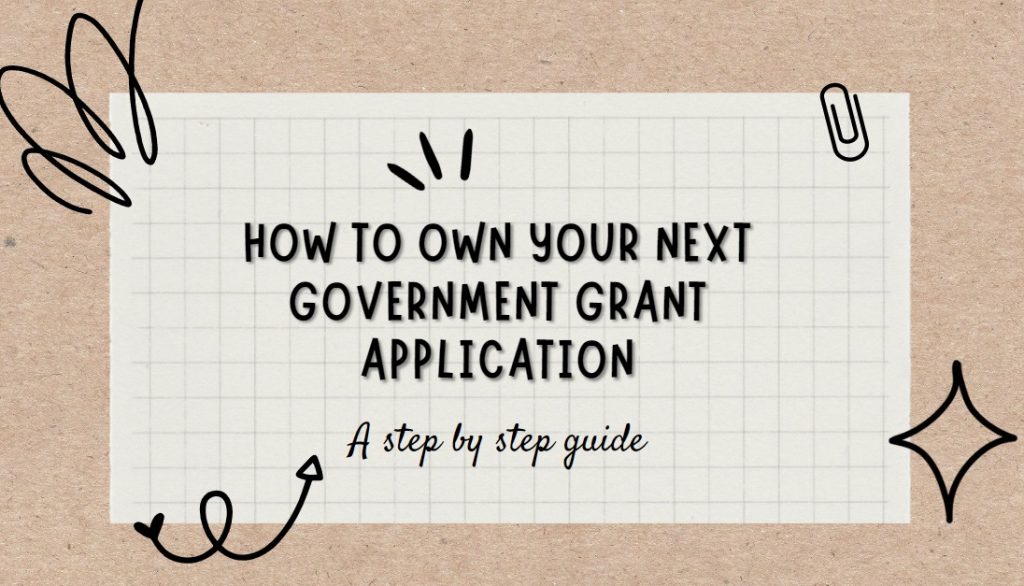Win Your Next Application For A Government Grant
As a small business in the UK, whether you are just starting out or attempting to expand, you are always in need of additional funds. The good news is that the British government offers a multitude of business funding options, such as government grants, government loans, and tax credit options, which can provide you with the necessary boost.
In this economic climate and for a small business, every pound counts. Perhaps now more than ever before. In light of this, it is always a good idea to be prepared for any attempt to earn more money, as it can be the deciding factor between success and failure.
Government Funding Options
There are numerous government options available to the United Kingdom. These government options can take various forms, such as:
- Government loans
- Government grants
- Tax breaks or tax credits
Government grants are the most desired.
As government grants are typically viewed as non-repayable, or free money, most startups and businesses seeking to expand seek this type of funding, as it is the most secure and reliable option.
This is what makes this government funding opportunity one of the most competitive options to consider and apply for.
To distinguish yourself from the competition “those applying for the same government grant program,” you should do everything possible to complete the government grant applications correctly and provide everything the agencies in question may request.
How To Own Your Next Government Grant Application
Before you can successfully apply for a government grant, you may need to fulfill a variety of requirements.
One should familiarize themselves with the government grant program’s offerings, eligibility requirements, and terms and conditions before beginning the application process. This is a treasure trove of data that will increase your chances of getting the grant.
The fundamental checklist for all government grant applications:
- Ensure that you have a comprehensive business plan.
- Prepare financial statements or forecasts (up to three years).
- Have a thorough breakdown of how the funds will be used (how the grant money will be used).
Your Business Plan
One of the most important things you can do to improve your chances of getting a government grant is to write a business plan. You shouldn’t even bother applying to grant organizations without this, as they all require it.
A business plan, also known as “grant writing” or a “grant document,” will detail your company’s structure and goals, its potential for expansion, its financial needs and its plans for the future in order to secure funding.
In other words, the government grant agency you’re applying to will have a thorough understanding of your business and your plans for the grant money if you submit a grant writing document, also known as a business plan.
The business plan builder is an excellent option if you haven’t already created a plan for your company. With its step-by-step instructions and provision for expert review, this template can help you submit a grant application that satisfies the requirements of the UK government.
Your Financials
The financials in a business plan play a major part in getting your government grant applications approved. The financial projections in a business plan are a crucial component in securing funding from the government.
You won’t get the grant unless you demonstrate to the funding organization that your business has viable potential, and these financial statements will do just that.
Providing you have a real, functioning business, the numbers you report in your financials can be taken at face value. Alternately, when first establishing yourself, it is standard procedure to project your financials in a 3-year format—often via a balance sheet, cash flow, and a profit/loss statement.
Most government grant applications will require financial records from the previous three years from an existing business. Here is where you will detail your earnings, costs, and total revenue.
For new businesses, the same method applies; however, since you’re still in the planning stages, rather than actually launching anything, the focus should be on showcasing projects based on what you anticipate will occur.
Due to the importance of getting grant applications in on time, now is a great time to consult an expert for assistance.
Your Funding Needs a Breakdown
Next, and in keeping with the “grant writing” theme, you’ll need to have a detailed breakdown of how much money you’ll need. This is an important step that should not be skipped if you want your application for a government grant to make sense and be processed correctly.
Spend some time thinking about which business costs you can cover (with your own money) and which ones you’ll need outside help with before you can accurately assess your funding requirements.
After this is complete, you should have a list of costs that must be met before you can proceed with your plans.
Now, before filling out an application for a government grant, make sure that the money you need is actually available through that grant or funding option. If not, don’t apply.
The Funding Database has nearly 500 different government grants for you to consider. Various grant programs provide funding for various costs; applicants should research each program carefully before assuming that all of their expenses will be covered.
Grants from the government tend to be targeted toward particular fields, geographic areas, or ends. You should be well-versed in these aspects because they can determine whether or not your grant request is approved.
Once you know how much money you’ll need, you can compare that amount to the various grant opportunities available. Make sure the location, industry, and goals of the position are a good fit for you before applying.
Hint:
Be specific about how the money you’re requesting from a government grant program will be used in the application’s response to the question. Try to show via examples, facts or figures.
The Application Process
Applying for a government grant isn’t always a walk in the park. Each month, thousands of businesses in the UK submit applications for these subsidies. It’s stressful and challenging to keep up with the competition while also trying to run a business.
One option to think about is asking for assistance while filling out applications.
Be careful of services that charge you a percentage of the grant or funding obtained – as this is not allowed and you may be asked for all of the money back; yet you will be on the hook for the fee to the service.
Instead, hire a consultant who can help you every step of the way, from reviewing your business plan and finances to completing the necessary applications.
Make sure to follow up with the relevant government agency after you have submitted your application for a government grant. The average response time from a government agency is between two and six weeks. A good time to follow up is around the 3-week mark.
If your grant application is rejected, the majority of funding organizations will tell you why. In many cases, it is possible to investigate the cause of the rejection and submit revised materials before the due date.
Government grants are constantly being announced – it is always a good idea to keep up to date and tools like the Funding Database can assist you and keep you on track.
SEARCHES RELATED TO GET APPROVED FOR FUNDING
get approved for funding
government funding application
government funding applications





